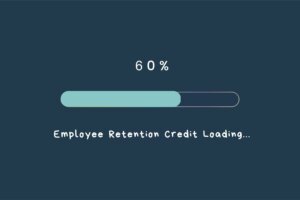‘Grants management’ encompasses a breadth of activities within a wide range of organizations and agencies, from small NPOs to federal agencies such as the NIH.
In the context of this post, I am defining grants management to encompass those activities conducted by NPO staff for the purpose of ensuring grant compliance, from the time the grant is accepted until it has been closed out. An important distinction is that the above definition excludes grants from government agencies, as the management of which is very complex.
However, management of grants from private and corporate foundations is still important, since it ensures compliance with the programmatic and financial elements of grants. It is important to remember that grants are NOT a no-strings-attached gift – they are a contract between the grantor, who provides the funds, and the grantee, who performs the tasks and delivers the outcomes described in the proposal.
As I’ve written previously in this blog, grantsmanship is a team effort, and your team is essential for effective grants management. Hopefully, you have worked with your organization’s program and financial staff people when preparing grant proposals, so they will be aware of the program goals, outcomes and metrics, evaluation methodology, and program budgets (see the chapters: “If You Evaluate It (Well) – They Will Come,” and “Developing Financials for Grants” in my ebook on Grants and Grantsmanship ).
Upon acceptance of a grant, a good practice is to meet with the program and financial staff people who will be involved in implementing the funded program. At that meeting, the grant management activities (listed below) should be discussed and assigned to the appropriate staff member(s), along with a schedule for when the tasks should be completed.
Depending on the size and culture of your NPO, you (as grant manager) may be involved in many of those activities, or you may function more as a project manager.
I strongly recommend against a hands off project management approach, as you are ultimately responsible for completing and submitting grant reports, and this is impossible to do well when trying to gather all the program and financial data from others at the eleventh hour! You may choose to meet (or communicate via e-mail) periodically, throughout the grant period, with those staff members … to ensure things are running smoothly.
Grant Management Activities:
• Conduct program activities as outlined in the grant proposal
• Evaluate program effectiveness as outlined in the grant proposal
• Communicate with grantor (if needed) to request change(s) to
program design and/or grant expenditures
• Maintain financial records for program expenses and revenues
• Complete and submit grant reports throughout the grant period
as requested by the grantor, including financial reports
• Complete and submit final grant report by grantor’s deadline,
including financial reports
=-=-=-=-=-=-=-=-=-=-=-=-=-=
Lynn deLearie Consulting, LLC, helps nonprofit organizations develop,
enhance and expand grants programs, and helps them
secure funding from foundations and corporations.
Contact Lynn deLearie.
=-=-=-=-=-=-=-=-=-=-=-=-=-=
Look for Lynn’s ebook on Grants & Grantsmanship.
It’s part of
The Fundraising Series of ebooks
They’re easy to read, to the point, and cheap ($1.99 – $4.99) ☺
=-=-=-=-=-=-=-=-=-=-=-=-=-=
If you’re reading this on-line and you would like to comment/expand on the above, or would just like to offer your thoughts on the subject of this posting, we encourage you to “Leave a Reply” at the bottom of this page, click on the feedback link at the top of the page, or send an email to the author of this posting. If you’ve received this posting as an email, click on the email link (above) to communicate with the author.
 Sections of this topic
Sections of this topic
















